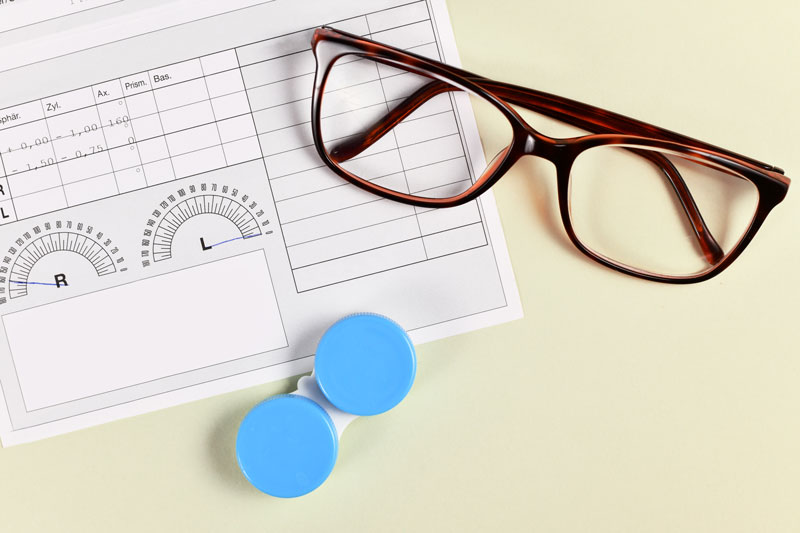Contact lenses are very safe. Still, wearing contact lenses can damage your eyes if you wear them too long, fail to clean them properly or do not replace them as directed by your eye doctor. Contact lenses are considered medical devices and are regulated by the U.S. Food and Drug Administration (FDA).
To protect your eye health,2DADOLL contact lenses use FDA-approved pigments and have passed the strictest CE and ISO quality certification systems.
Contact lenses can either provide the beautiful convenience of a full field of vision or a disgusting regular pink-eye/fungal infection for some. If you’d like to avoid being the latter, make sure to follow your doctor’s instruction for proper contact lens care and wear.
Below, we’ve accumulated the top 10 Do’s and Don’t of wearing contact lenses.
1.Do clean and disinfect your contact lenses and cases regularly.
Wash your hands with antibacterial soap and and avoid using any cream, lotion, oil before handling your lenses. Even if your contact solution is a “no-rub” solution, the FDA highly recommends the rub and rinse method for a deep clean. Create a schedule and make a daily habit of routinely cleaning and caring for your lenses. Click here for proper contact lens care and instruction. Replace your contact lens case every 3 months to reduce risks of infection.
2.Don’t re-use old solution in your contacts case.
Discard old solution, rinse your case with fresh solution, and refill case with new solution. You can use hot water to clean your case and air-dry it upside down on a clean tissue to keep bacteria away. Check here for a guide to best solutions for contact lenses. Never use water or saliva to rinse or store as solution replacements. Solution bottles should also be replaced one month after opening.
3.Do replace contact lenses regularly and abide by your doctor’s guidelines.
Over wearing your contact lenses for longer than recommended can lead to serious health problems such as infection and blurred vision. Replacing contact lenses in a timely fashion is important to optimizing eye health and comfort. Consider daily disposable contacts if you find yourself consistently breaking the laws of contacts.
4.Don’t wear your contacts overnight.
Unless your eye care practitioner has prescribed you specific contacts for overnight wear, wearing your contacts overnight can book you a trip to the emergency room. There is a good chance of an eye infection since your lenses will be in a static position. Blinking helps keep contacts moist and clean, which won’t be happening when sleeping.
5.Do trim your fingernails to avoid damaging your contacts.
Keep your fingernails short to avoid scratching or damaging your contact lenses during insertion and removal. Check here for a guide to insert and remove contact lenses. Fill your contact lens case to the top with solution to avoid accidentally tearing your contact lens when closing the case or picking up the lens. Avoid holding lenses tight in the middle and run solution to unfold tricky edges.
6.Don’t insert a torn or ripped contact in your eye.
I wish I could replace the word don’t with never in the sentence above. Don’t is an understatement. Never insert a torn, ripped, or dried contact lens back into your eye. No matter what the case, even if it feels okay, it is NOT okay. Click here to read more about the dangers of re-inserting damaged contacts. Throw the damaged lens out and replace with a fresh pair. Keep a backup pair handy to avoid questionable (although the answer is no) situations.
7.Do see your doctor IN-PERSON for a regular check-up.
Routine eye exams are critical to insure the health of your eyes and prevent conditions that may be harmful to your vision such as glaucoma, macular degeneration, or cataracts that can only be diagnosed by an eye professional. With online contact subscription and prescription sites available, you might question the need to see your local optometrist or ophthalmologist however they are by no means an assessment or prevention of eye disease.
8.Don’t wear contacts when entering a pool, hot-tub or participating in any water-activity.
Water is the perfect medium for bacterial thrivation. Wear protective eye wear such as sunglasses or goggles when exposed to pools, hot-tubs, lakes, or oceans. Even using tap water to wash or store lenses is dangerous.
9.Do give your eyes a rest.
Environmental factors can play a significant role in eye health and comfort. As mentioned above, blinking keeps the eye most, so position your reading materials or computer lower than eye level to encourage blinking. Keeping hydrated is also important to prevent eyes from dehydration. If your eyes feel dry during the day, you might want to turn the air conditioning down and stay away from smoke. Exposure to dust or even lengths of time in front of a computer can dry out your eyes.
10.Don’t use saline solution and rewetting drops to disinfect lenses.
These are not disinfectants and should never be used as solution. Saline, protein removers, eye drops, are meant to supplement and enhance your contact experience-not serve as solution replacements. Saline solution and rewetting drops or only meant to rinse or moisturize. Also avoid eye drops such as Murine or Visine as these are not suitable for contact lenses.
Additional Takeaways
In case of emergencies, have your glasses and lens case handy at all times for whenever lenses feel uncomfortable. Overwearing your lenses for maximum of hours or exceeding your wearing schedule can lead to a deterioration in eye health.
Be gentle with your contacts as these delicate films can rip and tear effortlessly. If you drop a contact, don’t move around as you may damage or step the lens. Calmly check your surroundings as lenses tend to stick to surfaces. Rubbing lenses can also damage lenses.
Don’t prescribe yourself contacts and always see an eye-professional if you feel pain or irritation. Also, never share contact lenses with your friends unless you like pink-eye.








